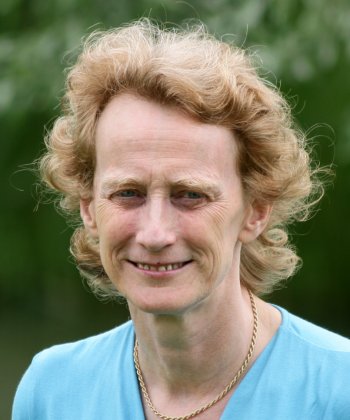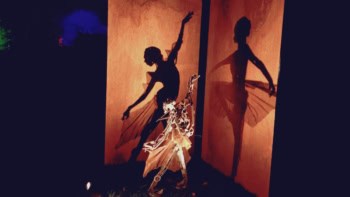
Athene Donald, as not seen on a desert island (Credit: University of Cambridge)
By Matin Durrani
Sadly I missed the appearance of my former PhD supervisor Athene Donald on the legendary BBC radio programme Desert Island Discs last Sunday.
The show, which has been running for over 65 years, features a celebrity or noted figure who picks their eight top records that they’d like to take with them as a castaway on a desert island. They also get to pick a luxury and a book.
The show’s website lists Athene’s choices, which unfortunately do not include any physics-related material that I could have made an amusingly weak comment about.
So there is nothing by astrophysicist-turned-rock-legend Brian May from Queen or by the former D:REAM keyboardist Brian Cox, who is now a particle physicst at Manchester University.
Donald, a polymer physicist at Cambridge University in the UK, also didn’t pick anything by Canadian band The Nylons or new Glasgow indie outfit We Are the Physics. Nor was there anything from Olivia Newton-John, whose grandfather was Max Born.
What she did pick though are pieces by mainstream composers like Beethoven, Mozart, Haydn, Schubert and Vaughan-Williams, with three left-field choices from Irving Berlin, Enrique Grandos and Paul Hindemith (no I’d never heard of him either).
The closest I can get to a physics pun is that the Irving Berlin piece she picked was “Blue Skies”, which perhaps reflects the kind of basic research she does.
You can catch up with a repeat of the show on Friday 27 March at 9.00-9.45 a.m. GMT.
I e-mailed Donald to find out what it was like being on the show. She said that host Kirsty Young was “charming” but that she found it “strange..and not always comfortable”, as a scientist, being asked about her life rather than her physics. “Listening to myself on Sunday was quite stressful for me,” she added.
“However, judging by the emails I have received, including from complete strangers, it resonated with some listeners – women in particular; with the need to try to encourage girls to stick
with science, that has to be pleasing.”
Donald added that music has always been part of her life and so there were some “no-brainers” in what to pick. “Beyond that core, it was then a question of trying to make the choices quite diverse, and with stories to hang onto each of them. That said, there are those who complain that it was too classical, my daughter included!”
Appearing on Desert Island Discs might be a rarity for scientists, but, as Donald points, the show “probably reaches a larger audience than many of our more structured activities. If any readers get an invitation to do a programme, I would say give it a go!”



